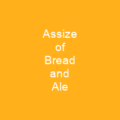Breakfast: The First Meal of the Day
Is breakfast really that important? After all, it’s just a meal, right? Well, let’s dive into the rich history and significance of this morning ritual. Breakfast is more than just a meal; it’s a tradition that spans centuries and cultures.
The Origins of Breakfast
Have you ever wondered where the term ‘breakfast’ comes from? The word itself, ‘breakfast,’ originates from Gallo-Romance desjunare, which means “to break one’s fast.” This etymology tells us that breakfast was once a meal to break the overnight fasting period. In ancient times, civilizations like Egypt, Greece, and Rome had their own unique morning meals.
Ancient Civilizations
In ancient Egypt, peasants would start their day with soup, beer, bread, and onions. This meal was essential for providing energy before a long day of work. In Greece, the morning meal called ariston was consumed immediately after waking up. Meanwhile, in Rome, ientaculum was a light meal consisting of staples like bread, cheese, and olives.
The Middle Ages and Beyond
During the Middle Ages, breakfast wasn’t always a part of everyone’s daily routine. It was primarily for children, the elderly, the sick, and working men. Eating breakfast meant you were poor or of low status. By the 15th century, western Europe saw meat included in breakfasts, while Eastern Europe followed a ‘continental breakfast’ style with items like bread and cheese.
Global Breakfast Traditions

The Evolution of Breakfast
How did breakfast evolve over time? In the 18th century, Austrian croissants were introduced, while French breakfasts included pastries like apple turnovers, brioche, and pain au chocolat by 1875. In the Netherlands, bread with cold cuts, cheeses, and sweet toppings became a staple. In the UK, breakfast was initially discouraged but later became an essential meal.
Breakfast in North America
American pioneers consumed cornmeal-based breakfasts, oatmeal for dinner and lunch, and meals like corn pone, johnnycakes, ashcakes, hoe-cakes, and corn dodgers. In 1897, the first true breakfast sandwich recipe was published. Popcorn cereal was a popular choice in the 1800s, while cold breakfast cereals were marketed starting from the late 1890s.
The Science of Breakfast
Does eating breakfast really make that much difference? Research suggests that it does. Eating breakfast can affect memory and brainwave activity, particularly in children. It’s also associated with better nutrition profiles, reduced weight, and improved academic performance. However, the impact on managing body weight is unclear.
Health Considerations
Is there a downside to eating breakfast? Some argue that it might increase the risk of metabolic syndrome if high in rapidly available carbohydrates. Professional opinion generally favors eating breakfast but recommends ditching unhealthy foods.
The Future of Breakfast
As we look towards the future, what changes can we expect in our morning meals? With global influences and technological advancements, breakfast traditions will continue to evolve. Whether you prefer a traditional full English breakfast or something lighter like a continental style meal, one thing is certain: breakfast remains an integral part of daily life.
So, the next time you sit down for your morning meal, remember that it’s not just about fueling up; it’s a rich tapestry of history and culture.
You want to know more about Breakfast?
This page is based on the article Breakfast published in Wikipedia (retrieved on February 4, 2025) and was automatically summarized using artificial intelligence.







